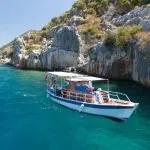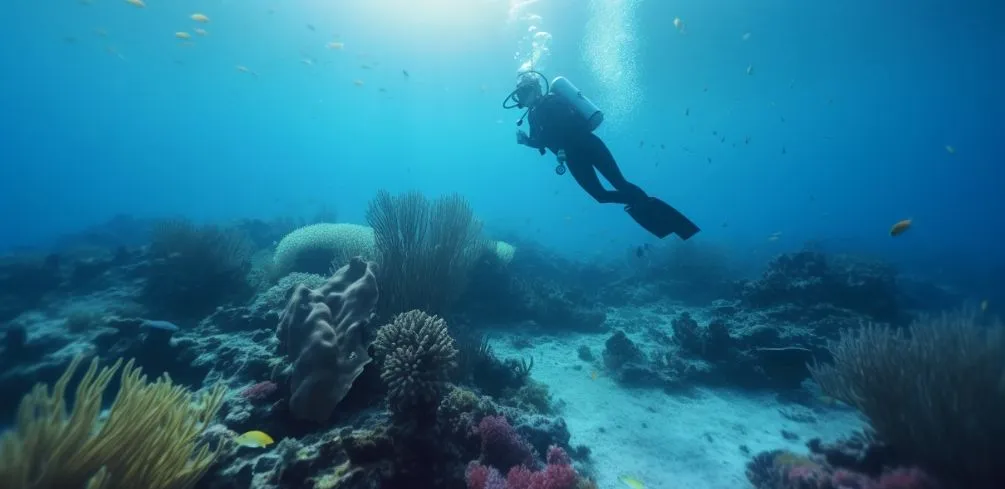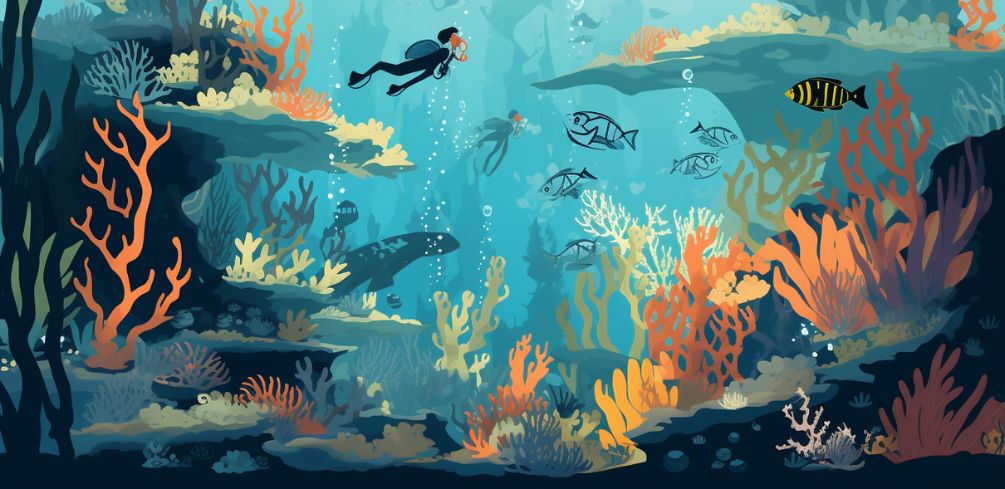Ecotourism is an important tool in the fight to protect our planet’s marine ecosystems. It provides a way for people to visit and learn about these fragile environments while also helping to support conservation initiatives and projects. But what exactly is ecotourism? And how does it help in the preservation of our oceans?
In this article, we will explore the role of ecotourism in marine conservation and discuss why it is so important. We’ll look at some real-life examples, too, so you can see how ecotourism can make a difference. By understanding the power of ecotourism, we can all play our part in protecting our planet’s marine ecosystems.
Are you ready to find out more? Let’s dive right into exploring the role of ecotourism in marine conservation!
Definition Of Ecotourism
What is ecotourism? What does ecotourism mean? Ecotourism is defined as a form of tourism that focuses on the appreciation of natural environments.
It involves visiting natural areas with the aim of enjoying and learning about the environment while minimizing any negative impact on it. Ecotourism involves activities such as hiking, bird watching, camping, and other nature-based activities.
Ecotourism aims to promote conservation efforts by educating people about the importance of protecting natural habitats. It also encourages sustainable development in areas where there is potential for tourism-related economic growth. By doing so, ecotourism can play an important role in promoting marine conservation.
Through ecotourism, visitors can gain an understanding and appreciation of marine ecosystems and their unique biodiversity. This helps to create awareness among tourists about the fragility of such ecosystems and promotes environmental stewardship.
Additionally, ecotourists often act as advocates for marine conservation initiatives by supporting local projects or raising funds for them.
Benefits Of Ecotourism To Marine Life
Moving on from the definition of ecotourism, it’s time to look at its benefits for marine life conservation. Ecotourism is an effective way of protecting our oceans, as it encourages sustainable tourism practices that benefit both the environment and wildlife.
By providing funding for marine conservation activities and initiatives, ecotourism can play a major role in preserving aquatic habitats. It also serves as an incentive for local communities to practice environmentally-friendly methods when harvesting resources from the ocean. This helps to ensure that the natural balance between humans and nature is maintained while still allowing people to make a living by fishing or other activities related to marine life.
In addition, ecotourism has been credited with raising awareness about the importance of environmental protection and inspiring people to appreciate and respect marine wildlife. Through ecotourism programs, visitors can learn more about these creatures’ unique behaviors and habitats.
This knowledge can then be used to inform future conservation efforts and help protect fragile ecosystems.
Ecotourism offers a multitude of advantages when it comes to safeguarding our oceans – from creating economic opportunities for locals to inspiring a greater appreciation for marine biodiversity. As long as we continue to prioritize sustainability in our actions, we can hope for a brighter future for both humanity and our planet’s precious underwater species.
Challenges In Implementing Ecotourism
How can we ensure that ecotourism is a tool for effective marine conservation? While it has the potential to be highly beneficial, there are many challenges to implementing ecotourism in a sustainable manner.
Firstly, ecotourism poses a challenge to the tourism industry when trying to balance environmental protection with economic development. Tour operators must find ways to reduce their environmental footprint and, at the same time, increase profits so they can stay competitive in their market.
This means that operators must be mindful of the resources they use, such as energy and water, as well as any damage their activities cause to marine wildlife.
Another challenge for tourism operators is ensuring that tourists are made aware of the need for conservation efforts. Many people are unaware of how their actions can have an adverse effect on marine life, and it is essential that tourists learn about sustainability practices before engaging in any activity related to ecotourism.
This could include educating tourists on the effects of plastic pollution, overfishing, and climate change on marine ecosystems.
Finally, while eco-friendly practices may help protect marine wildlife, they also come with an increased financial cost. Tour operators must be willing to invest more money into their activities if they want to ensure sustainable operations that benefit both the environment and local communities.
Plus, governments should provide support through policies and regulations that promote responsible tourism practices while also protecting local businesses from unsustainable operations or practices.
Ecotourism provides an opportunity for us to create positive change in our oceans, but only if we work together toward implementing sustainable solutions. We must all be aware of our impact on marine life and strive for solutions that protect both natural habitats and local economies.
Effective Strategies For Promoting Sustainable Ecotourism
When it comes to promoting sustainable ecotourism, there are a few practical strategies that can be implemented. These strategies are essential for marine conservation, as they help to ensure that the resources of the ocean and surrounding areas are preserved and protected.
The first strategy is to engage tourists in the process of ecotourism. By creating opportunities for tourists to become involved and invested in the preservation of these areas, they will be more likely to participate in activities that promote sustainability.
This could include encouraging visitors to take part in eco-friendly activities such as beach cleanups, snorkeling tours, or wildlife spotting trips. Additionally, it is important to educate the public on how their behaviors – such as plastic consumption – can affect the environment.
The second strategy is to create incentives for tourists who choose sustainable ecotourism options. This could come in the form of discounts on certain services or products within these locations or even reduced rates at certain hotels or resorts located near ecological tourism sites.
Moreover, this could involve offering certification programs for those who successfully complete courses related to sustainable tourism practices. Providing these incentives encourages more people to get involved with sustainable ecotourism initiatives and helps promote marine conservation efforts worldwide.
Overall, implementing effective strategies for promoting sustainable ecotourism can have a positive effect on marine conservation efforts while also increasing public awareness of environmental issues. Engaging tourists and providing incentives for participating in eco-friendly activities increase the chances of preserving natural resources while also promoting responsible tourism practices around the world.
Impact Of Ecotourism On Marine Conservation
Ecotourism is a powerful tool for protecting the planet’s marine life. It is a revolutionary concept that has revolutionized the way we think about sustainable development, environmental protection, and ocean health. Incredible progress has been made over the years in terms of marine conservation, thanks to ecotourism.
For starters, ecotourism has brought attention to the plight of threatened species and ecosystems. Tourists have become increasingly aware of their power to help protect fragile species, such as whales and dolphins, by supporting eco-friendly activities like snorkeling or whale-watching trips.
Ecotourism also encourages people to learn more about the importance of marine conservation and how they can contribute to it. Bringing tourists closer to nature gives them an opportunity to gain a better appreciation for its beauty and complexity.
In addition, ecotourism generates income for local communities who otherwise would not benefit from tourism activities. This provides financial incentives for people to protect these areas from illegal fishing practices or other destructive activities that can damage coral reefs or disrupt delicate habitats. By investing in sustainable tourism initiatives, locals are able to make money while maintaining the natural environment and its resources.
Ecotourism is essential for marine conservation efforts because it helps raise awareness among tourists about preserving our oceans and protecting vulnerable species living there. It also creates economic benefits for local communities through sustainable development initiatives by generating much-needed income from tourism activities that support ocean health and biodiversity conservation.
Ecotourism truly has been a game changer in helping us protect our most precious asset – our planet’s oceans!
Frequently Asked Questions
What Types Of Activities Are Included In Ecotourism?
Ecotourism is a great way to experience nature and the marine environment without harming it. It involves activities such as snorkeling, boat tours, whale watching, coral reef diving, educational tours, and more. All of these activities provide an opportunity to learn more about nature while enjoying the beauty of the marine environment.
Snorkeling is one of the most popular activities in ecotourism. It allows tourists to see the underwater world up close and personal. Snorkeling can be done on shallow reefs or around shipwrecks for a unique experience.
Boat tours are also famous for those who want to explore a variety of different locations in a single trip. Whale watching is another exciting activity that gives visitors a chance to observe these majestic creatures in their natural habitat. For those looking for more adventure, coral reef diving provides a thrilling experience while taking in the vibrant colors of sea life beneath the surface.
Lastly, educational tours are available that provide information about conservation efforts and how tourists can help protect marine ecosystems.
No matter what type of activity you choose, ecotourism offers a fantastic opportunity to explore nature without disrupting it. Whether it’s snorkeling on shallow reefs or learning about conservation efforts on an educational tour, ecotourism provides something for everyone. So why not give it a try? You never know what incredible experiences you might have!
Are There Any Regulations In Place To Ensure Ecotourism Is Practiced Sustainably?
Ironic as it may sound, when it comes to practicing ecotourism sustainably, there are actually regulations in place. You might think that ecotourism would be a free-for-all and that anyone can do whatever they want. That’s not the case, though; there are laws and regulations to ensure that ecotourism is practiced responsibly, both for the environment and to protect animal life.
When it comes to marine conservation specifically, numerous conservation regulations must be followed in order for tourism activities to remain sustainable. This includes everything from restrictions on the number of people who can visit certain areas at once to limits on how close visitors can get to animals or other protected habitats.
There are also laws in place to prevent any kind of pollution or disturbance caused by ecotourism activities such as boating or fishing. These regulations help ensure that marine conservation efforts remain effective while still allowing visitors to enjoy their experience.
Ecotourism is an important part of marine conservation and sustainable tourism efforts, but only if it is practiced responsibly and with respect for the environment and its inhabitants. By following the necessary regulations, we can ensure that our activities don’t have a negative impact on the ecosystem and that we are helping protect our oceans for generations to come.
What Are The Economic Benefits Of Ecotourism?
I’m sure you’ve heard about ecotourism and its potential to bring economic benefits. But what exactly are these economic benefits? The ecotourism industry has grown rapidly in recent years, providing a valuable source of tourism revenue for many countries around the world. It also offers an opportunity to promote environmental protection and sustainable tourism practices.
In addition to generating income from tourists, ecotourism can provide employment opportunities for local people and offer support to conservation initiatives. By investing money into the local economy, governments can encourage people to invest in activities that protect the environment.
This is beneficial for both local communities and the environment, as it allows them to benefit from tourism while minimizing damage to natural habitats.
Ecotourism also helps spread awareness about conservation issues and gives visitors the opportunity to experience nature up close. By allowing tourists to witness first-hand how their actions can have a positive impact on ecosystems, they are more likely to become advocates for environmental protection. This creates a ripple effect that has far-reaching benefits not only for marine life but also for our planet as a whole.
The economic benefits of ecotourism are clear: by supporting sustainable tourism practices, we can help conserve marine life while creating jobs and generating revenue for countries around the world. With proper planning and regulation, we can ensure that the future of our oceans remains healthy and vibrant for generations to come.
How Can Local Communities Benefit From Ecotourism?
When talking about how local communities can benefit from ecotourism, there are many implications to consider. For one thing, local initiatives can be put into place to maximize the economic benefits of ecotourism and make sure that these funds are reinvested back into the local community.
Local communities also benefit from sustainable practices in their environment, as well as educational and cultural activities that come with ecotourism.
The economic benefits of ecotourism for local communities include job creation through direct tourism services such as hotels and restaurants, as well as indirect activities such as transport and tour guides. In addition, the money generated from eco-tourists can be used to support conservation efforts in the area. This is especially important when it comes to marine conservation since many coastal areas rely heavily on tourism for their livelihoods.
Furthermore, ecotourism encourages locals to invest in sustainable practices that will protect the environment while providing a steady source of income. This helps them become more aware of their natural resources and encourages them to take ownership of their own environment.
It also allows them to gain insight into different cultures and learn about conservation techniques from other parts of the world.
In short, local communities have much to gain from participating in ecotourism initiatives. Not only do they have access to economic opportunities, but they also get to experience environmental protection while gaining knowledge about different cultures and conservation techniques at the same time.
What Are The Long-Term Effects Of Marine Conservation Through Ecotourism?
Ecotourism is a great way to promote marine conservation and sustainable tourism, but what are the long-term effects? It’s important to look at both the positive and negative impacts of ecotourism on marine conservation, so we can make sure that any regulations adopted are in the best interest of all involved.
In terms of positive impacts, ecotourism has been shown to reduce overfishing and illegal fishing activities in areas where it is implemented. This means that more fish stocks can be preserved and even replenished over time, providing a healthier environment for all species living in that area.
Ecotourism can also help fund conservation efforts by providing additional revenue for organizations working to protect the environment. In addition, it may give local communities an incentive to support conservation efforts since they will benefit from increased economic activity.
On the other hand, there are some potential drawbacks to marine conservation through ecotourism. Some fear that it may lead to overcrowding of certain areas or even damage to fragile ecosystems due to excessive human activity.
Additionally, it could lead to a decrease in biodiversity if regulations aren’t put into place or enforced properly. Finally, there is also the concern that tourism dollars may not reach those who need them most—namely local communities—and instead go towards large corporations or businesses outside of the area.
It is clear that while ecotourism can be beneficial for marine conservation in the short term, we must consider its potential long-term effects as well before implementing any regulations or initiatives related to this form of tourism. We must ensure that any policies adopted are fair and equitable for everyone involved so as not to worsen existing inequalities between different groups of people or cause more harm than good when it comes to protecting our oceans and seas.
Conclusion
The importance of ecotourism in marine conservation cannot be underestimated. It is a powerful tool for protecting the delicate balance of our ocean ecosystems while also providing economic and social benefits to local communities. By engaging people in direct experiences with nature, we can foster an appreciation for the natural world and promote sustainable practices that will benefit us all in the long run.
Take, for example, the Island of Bimini in The Bahamas, where a vibrant community of fishermen has been dedicated to protecting their waters for generations. Through ecotourism initiatives such as snorkeling and diving tours, these local fishermen are able to share their love of the ocean with visitors while also creating a sustainable source of income that allows them to continue their conservation efforts.
Ecotourism can play an essential role in preserving our marine environments while helping to improve lives around the world. By investing in ecotourism projects, we can ensure that future generations will be able to enjoy the beauty and bounty of our oceans for years to come.





